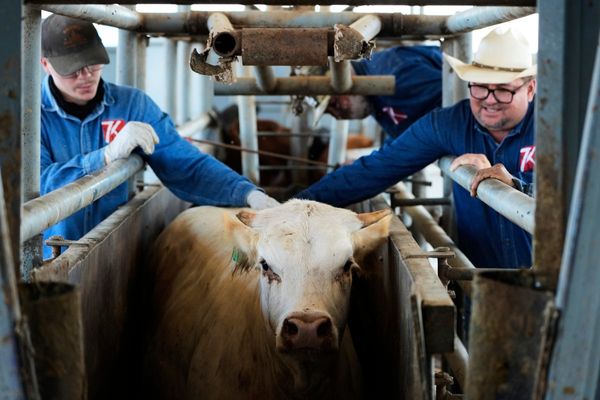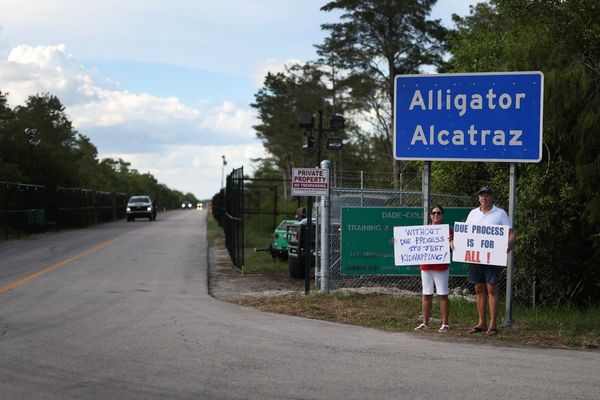Amazon will broaden its same-day grocery delivery offering to reach more than 2,300 cities and towns in the U.S. by the end of the year, the e-commerce giant said Wednesday. Amazon stock gained while shares of a grocery delivery rival, Instacart parent company Maplebear, fell sharply.
Seattle-based Amazon said in a blog post that its customers can order same-day grocery delivery in more than 1,000 cities currently, with plans to add more markets throughout the year.
Members of Amazon Prime can receive same-day grocery delivery for free on orders worth more than $25. Purchases below that total have a $2.99 fee. The service costs a $12.99 fee for orders from customers without Prime, according to Amazon's announcement.
The announcement marks the latest effort for Amazon to capture a greater share of the more than $1.5 trillion that Americans spend each year on groceries. Grocery is a rare category where Amazon is not the market leader for e-commerce sales, with analysts estimating that Walmart captures a greater share of online grocery ordering.
On the stock market today, Amazon stock is up around 1% at 224.06. The gains have Amazon near its 21-day moving average, a key investor support level the stock fell below after its second-quarter report last month.
Amazon's expansion plans are weighing on Maplebear, whose Instacart is the leading on-demand platform for grocery delivery. Instacart stock tumbled more than 13% to 44.35.
DoorDash stock, which also offers grocery delivery, was down more than 4% at 251.96 in recent trading. Uber Technologies was down 1.6% at 90.31.
Shares of leading grocers are under pressure Wednesday as well. Walmart stock was down 2.5% at 101.11 in recent action. Kroger was down 4% at 70.26. Costco Wholesale stock was down 1% to 980.47 at last check.
Amazon Stock: Grocery Push
Grocery has been a difficult nut for Amazon to crack. Its efforts in the category include its acquisition of Whole Foods in 2017 for nearly $14 billion. It also has Amazon Fresh stores and offers groceries directly through Amazon.com, including through third-party shops operated by other grocers. The mix of delivery channels has left some consumers confused, analysts note.
Amazon has revamped some of its offerings. Last year, it launched a grocery subscription option. For an additional $9.99 per month, Amazon Prime members can sign up for unlimited grocery delivery on orders worth more than $35 from Whole Foods Market, Amazon Fresh and other grocery retailers on the platform.
Amazon's blog post said its new service is designed to "complement" its existing grocery delivery options.
Chief Executive Andy Jassy said in a recent call with analysts that Amazon ran a successful pilot program that allowed customers to bundle perishable items within orders for other items, such as apparel and electronics. Items the company designates as "everyday essentials" represent one out of every three units sold on Amazon, he added.
Wedbush analyst Scott Devitt called Amazon's announcement a "shot heard around the warehouse." He noted that grocery is the biggest retail category and is still "relatively untouched" by the internet.
"The grocery mix at large general merchandisers such as Walmart, Target, and Costco has made the category of critical importance to Amazon," Devitt wrote. "Businesses such as Instacart were created to deliver on behalf of existing grocers. DoorDash, Uber and others have also entered the category. Along comes Amazon, with an existing nationwide network of fulfillment centers and delivery trucks that seems to have finally figured out how to store and fulfill perishables in a way to support same-day efforts."
Instacart Stock Tumbles
Some analysts think the sell-off for Amazon's grocery competitors is overdone.
"Amazon has been trying to crack the grocery and perishables market for years with limited success," CFRA analyst Arun Sundaram wrote in a client note Wednesday. "While Whole Foods has performed well, its target market is confined to the natural and organic segment."
Bernstein analyst Nikhil Devnani added that Amazon's push could help expand the total market for online grocery shopping. And Instacart has "selection advantages to the degree consumers value ordering from Costco, Kroger, etc. These retailers now need to lean further into the on-demand platforms to compete with Amazon."
Earnings power for DoorDash should also "remain unchanged," Devnani wrote, powered by restaurant delivery and expansions into grocery and international markets.







